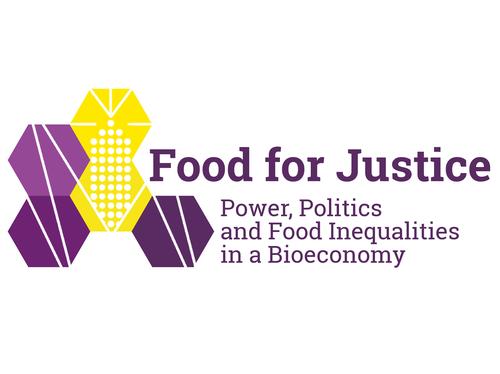Food for Justice
Food for Justice: Power, Politics, and Food Inequalities in a Bioeconomy is a Junior Research Group based at the Institute for Latin American Studies from the Freie Universität Berlin. It is funded for the period of 5 years (01.04.2019-30.03.2023) by the German Federal Ministry of Education and Research (BMBF).
Food for Justice looks into social mobilization targeted at injustices in the food system and into social and political innovations that address inequalities undermining food security such as class, gender, race, ethnicity, nationality.
Context:
There is a growing politization of the production, distribution and consumption of food, because food relations are structured by economic, social, political, cultural and environmental inequalities. Increasingly, citizens perceive the global food system as part of the historical causes of the ecological crisis and the persisting hunger in the world.
Goals:
- To approach the complexity of the relations that would contribute to food security in a bioeconomy while taking into account social inequalities, political disputes over agrarian futures and justice claims related to the food system.
- To build up knowledge about which food system citizens desire, which solutions are already there that address social concerns and how to redirect public policies towards a fair and sustainable food system.
- To map innovative practices that deal with inequalities that undermine food security.
- To contribute to public policies, inform new mentalities and practices, and identify technological and social needs to ensure food security with environmental and social justice.
Central research questions:
- What are the main justice claims against inequalities in the food system that mobilize citizens and consumers in different world regions?
- Which social innovations emerged from those concerns?
- How can successful social innovations influence public policies?
The approach:
Food for Justice’s approach takes into account cross-sectional issues and complex networks that overcome extant boundaries of urban and rural, nature and society, and local and global.
More information here: LINK




